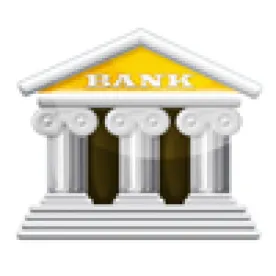In a rare bipartisan vote, 16 Democrats and one Independent who caucuses with the Democrats joined with 50 Republicans to pass Senate Bill 2155, the Economic Growth, Regulatory Relief, and Consumer Protection Act (Senate Bill). The Senate Bill is the most comprehensive reform to the Dodd-Frank Act that has passed the Senate, although it is more limited in scope than HR 10, better known as the Financial CHOICE Act of 2017, the Dodd-Frank Act reform bill passed by the House of Representatives in June 2017.
There are a number of notable provisions in the Senate Bill.
-
Provisions to reduce the applicability of certain regulations to, and to simplify the capital requirements for, smaller financial institutions or community banks (generally defined as banks with less than $10 billion in total consolidated assets), including removing the applicability of the Volcker Rule to financial institutions with less than $10 billion in total consolidated assets.
-
A provision to raise the systemically important financial institution (SIFI) threshold under the Dodd-Frank Act for bank holding companies from $50 billion in total consolidated assets to $250 billion in total consolidated assets.
-
A number of consumer-focused provisions, including provisions for credit report security freezes, identity verification for online banking, and immunity from civil or administrative lawsuits for banks, broker-dealers, investment advisers, insurance companies, and other financial institutions that voluntarily report suspected elder financial exploitation.
-
A provision creating a qualified mortgage “safe harbor” for financial institutions with less than $10 billion in total consolidated assets.
-
A provision allowing a licensed residential mortgage loan originator to temporarily act as a residential mortgage loan originator in a new state, pending approval of the originator’s license application in that state.
-
A provision modifying the Volcker Rule’s name restrictions for covered funds sponsored by a banking entity.
Although the passage of the Senate Bill is a significant regulatory development and the substance of the Senate Bill has received a good deal of attention, those who have been pushing for changes in the Dodd-Frank Act should not yet pop the champagne corks. The same day the Senate Bill passed, House Financial Services Committee Chairman Jeb Hensarling (R-TX) released a statement that clearly signals that the House is not inclined to pass the Senate Bill as is. Hensarling called the Senate Bill “a package of helpful bipartisan banking bills” and said he “look[s] forward to combining them with our helpful House bipartisan banking bills.” Translation: Some of the provisions in the Financial CHOICE Act of 2017 will have to be added to the Senate Bill before the House will vote on Dodd-Frank Act and financial regulatory reform.
Given that the Financial CHOICE Act of 2017 did not receive a single vote from a Democrat (although there were parts of the bill that received support from Democratic members of the House), adding any of the more controversial provisions from the Financial CHOICE Act to the Senate Bill would make it difficult to attract bipartisan support in the House and retain bipartisan support in the Senate. We are at best guardedly optimistic that the House and Senate can find common ground, especially with the midterm elections occurring later this year.




 />i
/>i

